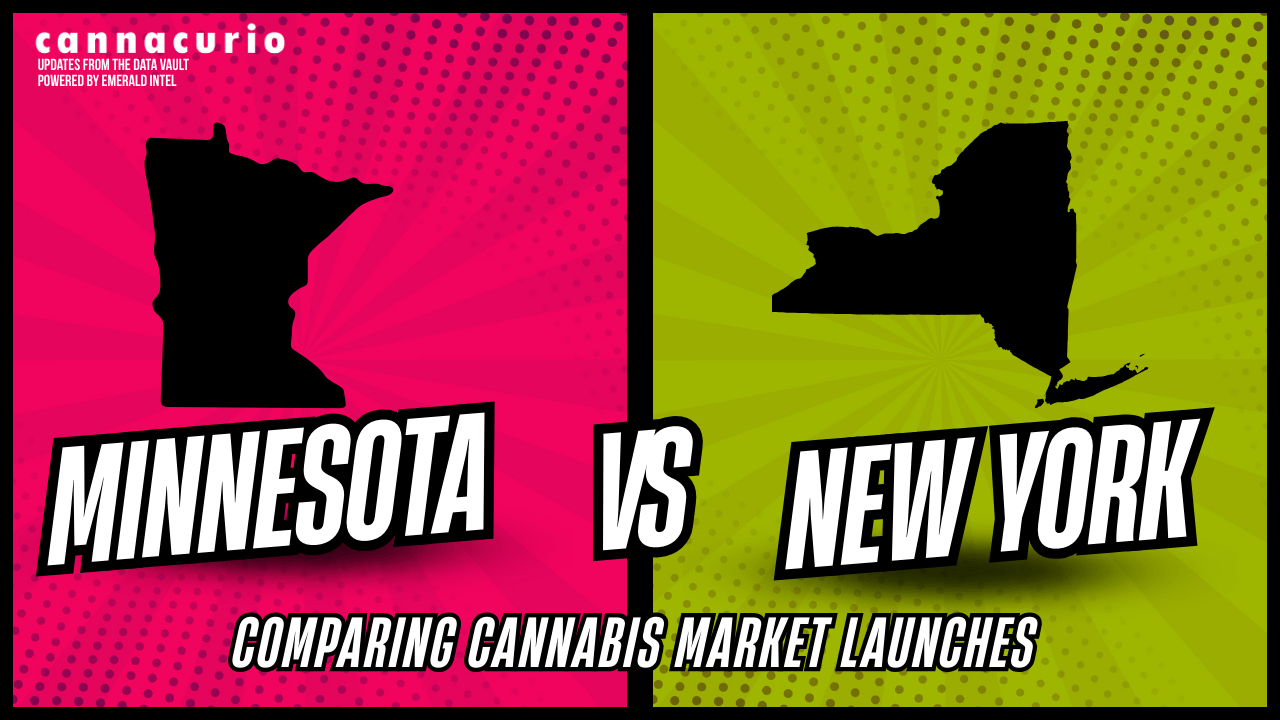
Businesses that Stigmatize the Marijuana Industry
Despite the fact that medical and/or recreational marijuana is legal in 32 states and 62% of Americans support legalizing marijuana for adult-use, there are still some businesses operating outside of the marijuana industry that won’t (or can’t) play nicely with businesses operating inside the marijuana industry. As a result, those outside businesses continue to stigmatize the marijuana industry.
In recent years, companies in a variety of industries have refused to work with marijuana-related businesses. Some of these companies claim laws prevent them from serving the marijuana industry, but many of those laws might not be relevant for ancillary marijuana businesses (i.e., marijuana businesses that aren’t actually making, buying, selling, or transporting marijuana in any form).
As a result, these outside companies are creating even more barriers to enter and stay in the cannabis industry for legitimate ancillary marijuana businesses. Let’s take a look at some examples.
Banks
The banking issue has been a problem in the marijuana industry for years and forces many marijuana businesses to operate in all cash. This is a problem for licensed marijuana cultivators, processors, dispensaries, retailers, testing labs, and transportation companies as well as for many marijuana-related businesses that aren’t making, buying, selling, or transporting marijuana.
For example, even though recreational is legal in California, many marijuana-related businesses like Hippo Premium Packaging – which creates logos, labels, and packaging for other business’ marijuana products to use – cannot access bank accounts. The reason is because banks are still afraid they could lose their charters if they work with businesses dealing with products that are illegal at the federal level.
Crowdfunding and Payment Processors
Marijuana-related businesses also have problems finding providers to handle payment processing. For example, PayPal and Stripe won’t work with marijuana-related businesses. The shunning of the marijuana industry by mainstream companies stretches even further than you might think. Both PayPal and WePay say they don’t allow fundraisers for anything marijuana-related due to federal law, even if those fundraisers are medical-related and held in states where marijuana is legal.
Last year, when a fundraising campaign was set up by the California Growers Association on the crowdfunding site YouCaring to help cannabis cultivators who were impacted by massive wildfires in Northern California, nearly $25,000 was raised before the payment processor, WePay, stopped taking new donations. WePay said the campaign violated its terms of service and donations would be returned to the donors.
At the same time, another campaign called MendoFireL Cal Growers Wildlfire Relief Fund had raised more than $13,000 in six days from 88 donors before WePay deemed that it also violated its terms of service and would not be allowed to continue.
Email Service Providers
Email service providers have also been known to suspend the accounts of marijuana-related businesses claiming they violate the providers’ terms of service. This happened to Cannabiz Media last year when MailChimp suspended its account without notice or recourse. Cannabiz Media responded by adding a comprehensive email marketing feature into the Cannabiz Media Database to help other businesses, investors, journalists, and so on working in the marijuana industry avoid similar fates.
MailChimp isn’t the only email service provider that doesn’t allow marijuana-related businesses (those that don’t touch the cannabis plant at all) to use its product. Many other companies like Hubspot, Infusionsoft, Constant Contact, GetResponse, Campaign Monitor, ActiveCampaign, and more include language in their terms of service stating users cannot send messages related to illegal goods or services, illegal substances, or unlawful material. In other words, if a marijuana-related business wants to use an email marketing tool for marketing purposes or simply to send transactional messages (e.g. receipts or shipping confirmation messages), it’s out of luck.
Digital Ad Publishers
For businesses in most industries, social media advertising and search advertising represent some of the most important and successful marketing tools available today. Not only are Facebook ads, Instagram ads, YouTube ads, Google ads, and so on affordable, they’re also an easy way to get a brand in front of a global, yet highly-targeted audience. Unfortunately, marijuana businesses can’t use any of these ad services. Many marijuana-related businesses can’t use them either.
Facebook, Google, and many other online advertising platforms don’t allow ads related to marijuana on their platforms in any way. Whether or not you’re a business that actually touches the marijuana plant at all is irrelevant to these digital ad publishers. The same is true even if businesses use the sophisticated targeting tools offered by digital ad publishers to ensure their ads are only displayed to people in states where medical and/or recreational marijuana is legal.
Bottom-line, if a business operates anywhere near the marijuana industry, its ads will not be allowed to run on many online ad platforms and networks. Fortunately, there are ways to overcome advertising challenges in the marijuana industry, but for businesses that operate in or for the marijuana industry, some of the best marketing tactics simply aren’t available.
Event and Ticket Sales Platforms
For marijuana-related businesses, non-profit organizations, educational institutions, or anyone else who wants to hold an event related to marijuana, finding an online tool to sell tickets could be a big problem. Last year, Eventbrite pulled events related to the marijuana industry from its ticket sales platform. Even the New York Cannabis Film Festival, which has sold tickets through Eventbrite for the past two years, had its event pulled from Eventbrite and its Eventbrite user account was deleted.
People who have sold tickets to marijuana industry networking events have also had their events pulled from the Eventbrite site and their accounts suspended with no notice aside from an email message saying they were guilty of “violations of law surrounding a federally regulated substance.” For some events that were already in progress (meaning tickets were already being sold), account owners had to struggle to log into their accounts to retrieve guest lists and receive money for the tickets that were already sold.
Insurance Providers
Many large insurance companies don’t want to deal with marijuana-related businesses. As a result, marijuana businesses have to seek high-priced insurance from alternative carriers. Of course, this also limits their choices. Fortunately, there are some smaller insurance firms filling the gap, but in such a fast-growing industry, that’s not enough.
Considering that many states require that marijuana cultivators, processors, dispensaries, and retailers have insurance policies in place in order to apply for and obtain marijuana licenses to operate, the insurance challenge could be insurmountable for some marijuana businesses. There is no doubt that competition is essential, but without enough insurance choices, few marijuana businesses can actually overcome the insurance challenge and enter the market.
The Takeaway
None of this makes sense for marijuana-related businesses that aren’t actually making, buying, selling, or transporting marijuana. If you’re designing packaging, gathering data, selling event tickets, or doing any other kind of commercial activity that doesn’t actually involve touching marijuana, your business shouldn’t be treated the same as one that istouching marijuana.
There are actually two problems happening here. First, marijuana-related businesses should be treated separately from marijuana businesses, and second, businesses that do actually touch marijuana should have the same opportunities to operate and grow competitively as businesses in other industries have. That means they should have access to banking, crowdfunding, email, advertising, event planning, and insurance – just like businesses in other industries.
The marijuana industry shows no signs of slowing down in the near future. While some big companies like MailChimp, Google, WePay, Facebook, and Eventbrite might be worried that investors won’t like it if they work with ancillary businesses in the marijuana industry, smaller providers have big opportunities to stake their claims on niche services for marijuana-related businesses.
It’s a fundamental rule of marketing that being first to market is a significant advantage. All that remains to be seen is who will be first to market offering these important operational, financial, and marketing services directly to the marijuana-related businesses that need them.
Need more insights?



.png)